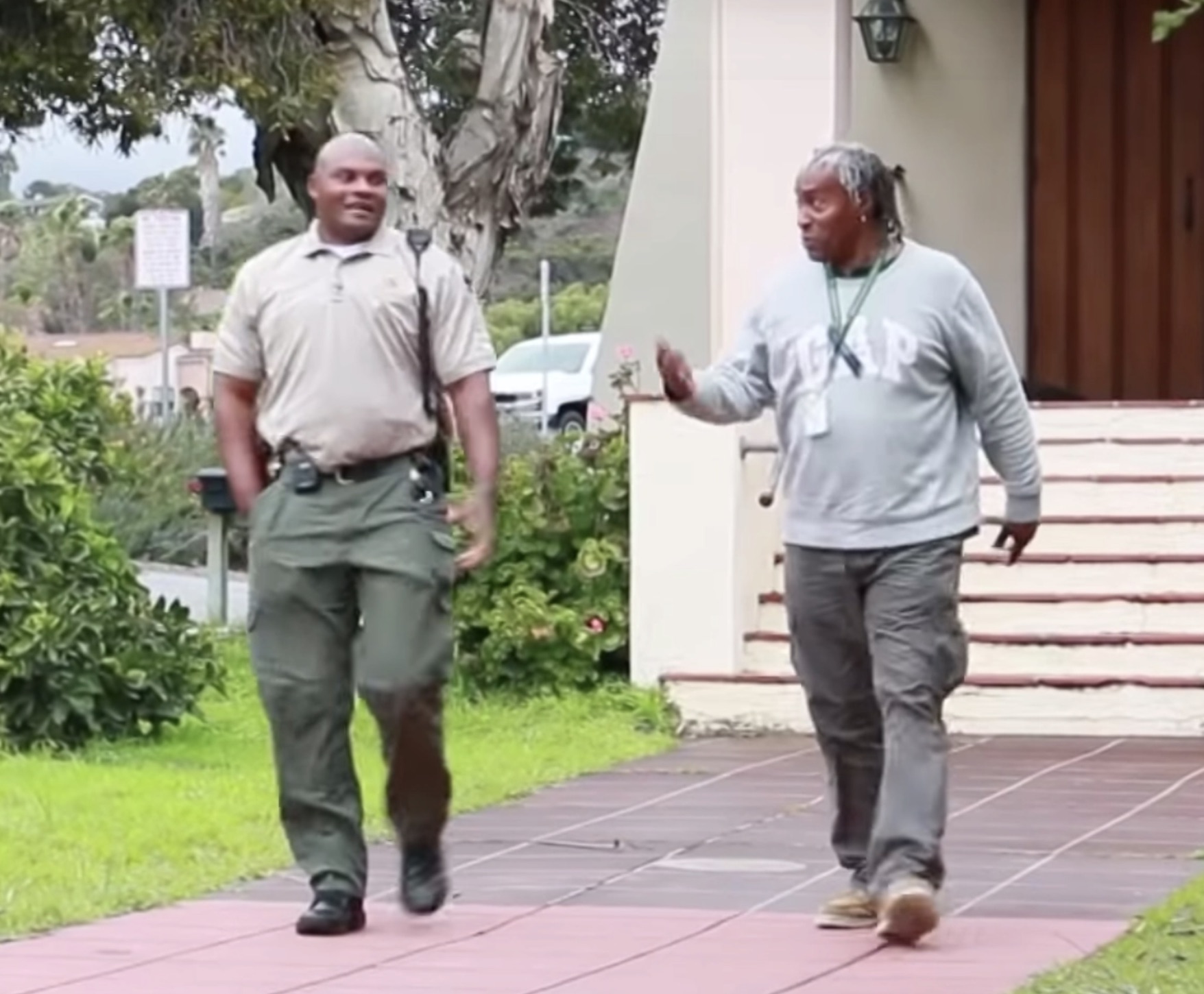Santa Barbara County’s Three Co-Response Units Show Success
Mental Health Experts Team with Deputies to Respond to Calls for Service

At a time when American society is scrutinizing when and how law enforcement officers should be deployed, the County of Santa Barbara released a report this week detailing the work of three “Co-Response” units, in which mental health professionals are teamed up with Sheriff’s Office deputies on calls for service. In Santa Barbara County, two teams patrol throughout South County seven days a week while one handles North County Monday through Thursday; all of the officers dress in polo shirts rather than traditional uniforms.
Of the 703 mental health calls received by 911 dispatchers in March, April, and May, 363 were handled by the Co-Response teams, resulting in just seven arrests. In 147 calls, the subjects were deemed potentially suicidal, but only 25 calls resulted in the subjects being deemed an immediate threat to themselves or others, requiring placement in “5150” psychiatric unit holds for at least three days.
Get the top stories in your inbox by signing up for our daily newsletter, Indy Today.
Launched as a response to scrutiny over the policing of mental health cases, the Co-Response tends to cut down the time and risk it takes to deal with people in the heat of a meltdown. In the past, it’s taken as long as two hours for uniformed officers to be joined by mental health professionals in calls of this type. In worst-case scenarios, such encounters between uniformed officers — trained to present a stiff command-and-control countenance — and those in crisis can be volatile and lethal. The units are designed to reduce such violence, keep mentally ill people out of jail, and free up deputies for other calls for service.
The numbers presented this past Monday at a gathering of the county’s “Stepping Up” program seemed to bear this out. Dr. Cherylynn Lee estimated that the 363 hours spent by the Co-Response teams is 363 hours that would have otherwise demanded the time of sworn officers. As it is, sworn officers spent 759 hours responding to such calls.
Santa Barbara’s co-response program started off as an unfunded, once-a-week, every-other-week pilot project in late 2018 at the instigation of Lt. Eddie Hsueh. It grew to hire Dr. Lee, and by last spring, the program — then only one team — looked to be toast, with the only assigned deputy assured he would be sent back to patrol. Mental-health advocates rallied, the county supervisors approved stopgap funding, and two grants came through to fund the current programs.
The City of Santa Barbara Police Department initiated a similar program, but it never became a speciality assignment. The city allowed officers seeking overtime to work the Co-Response detail, but the approach lacked continuity. When the COVID crisis hit, the grant funding was diverted to homeless emergency efforts. Dr. Lee has been discussing plans to allow the county’s co-response teams to patrol within city limits, but no agreements have been formalized. If money were no object, there’s work for five such teams, said Lee, noting that the North County team is already spread thin.
Overall, Santa Barbara County’s law enforcement expenditures have jumped from $167 million to $254.7 million over the past decade. Of that, the biggest jump involved county jail operations, which have increased from $36 million to $66 million, reflecting the additional costs associated with the construction and staffing of a soon-to-be-opened North County jail. Non-jail funding for the Sheriff’s Office increased from $64 million to $88 million in that time. Probation jumped from $38 million to $58 million, and the District Attorney increased from $17 million to $27 million.
At the Santa Barbara Independent, our staff is working around the clock to cover every aspect of this crisis — sorting truth from rumor. Our reporters and editors are asking the tough questions of our public health officials and spreading the word about how we can all help one another. The community needs us — now more than ever — and we need you in order to keep doing the important work we do. Support the Independent by making a direct contribution or with a subscription to Indy+.



